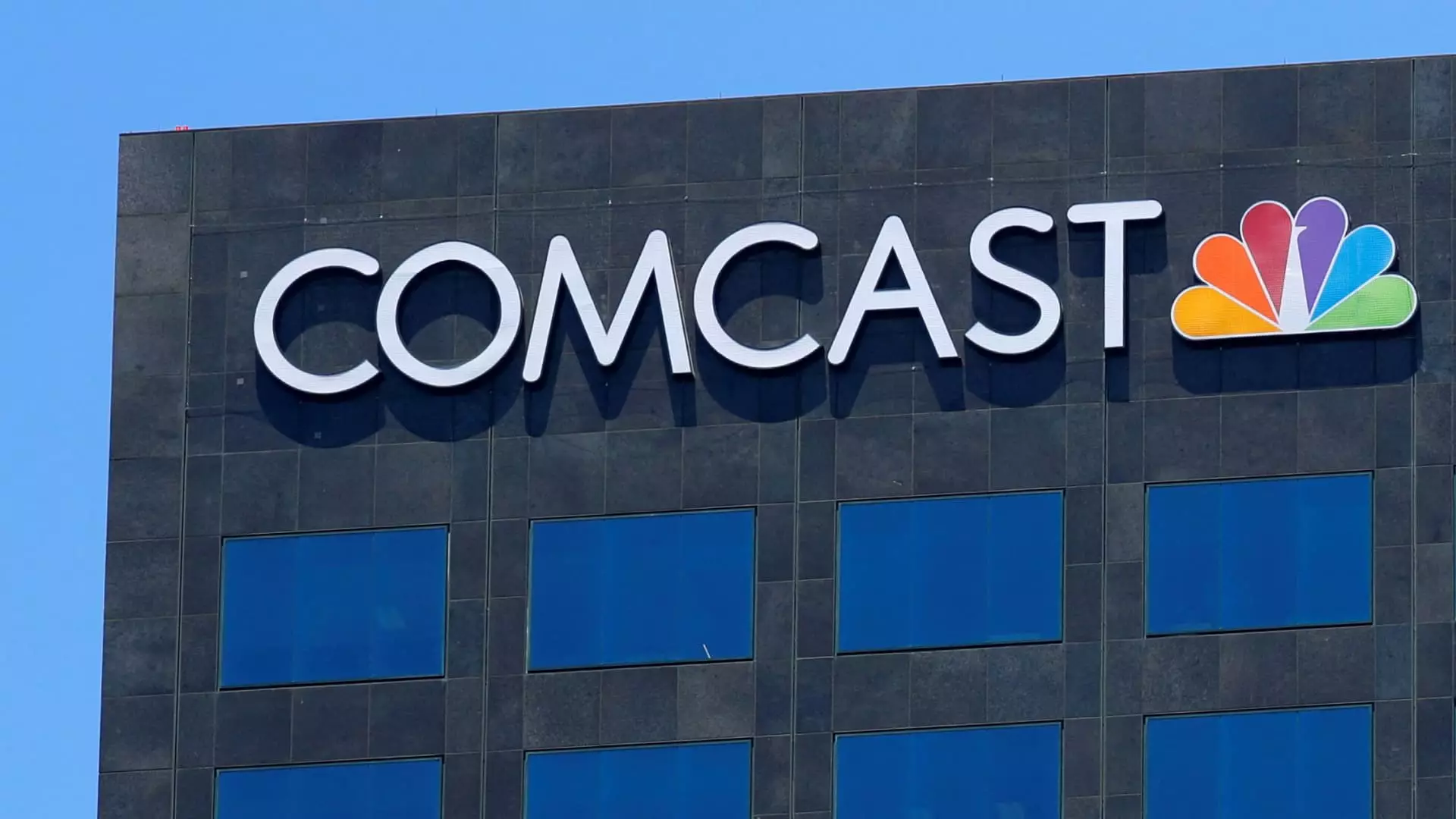As the landscape of media consumption shifts dramatically, Comcast has made the strategic decision to spin off its cable network channels. This move, confirmed by several sources to CNBC, indicates a transformative phase for the media giant, as it adapts to the rapid changes in viewer habits and economic pressure caused by cord-cutting trends.
The separation of Comcast’s cable networks is anticipated to unfold over approximately a year, with preliminary announcements possibly emerging soon. This spinoff is not merely a reactive step; it represents a proactive strategy to enhance operational flexibility. By creating a standalone entity, Comcast is positioning itself to facilitate potential mergers with other networks or even attract private equity interest. The goal is to create a “well-capitalized company” that can better navigate the shifting dynamics of the media industry.
As the media landscape continues its transition from traditional pay TV to streaming platforms, Comcast is acutely aware that its historical revenue models are under pressure. Despite the substantial revenues generated by the traditional cable networks—drawing a reported 37% increase to $8.23 billion, primarily from the Olympics—the existential threat posed by cord-cutting and changing viewing habits cannot be ignored. Through this spinoff, Comcast aims to unlock new growth vectors while ensuring that its core assets remain robust and competitive.
The new entity formed from this spinoff will be helmed by Mark Lazarus, the current chairman of NBCUniversal’s media group, with financial operations headed by Anand Kini, who currently serves as CNBC’s CFO. This leadership mixture invites optimism as both individuals possess extensive experience in content delivery and financial management. Importantly, while Brian Roberts, the chairman and CEO of Comcast, will continue to hold a voting stake, he will not take a direct operational role, which may help facilitate a more nimble decision-making process within the new company.
This shift will also prompt a reorganization of NBCUniversal’s internal structure. Key players such as Donna Langley will transition to lead NBCUniversal Entertainment and Studios, while Matt Strauss will head the broader media group. Projects that fall under this umbrella include popular networks such as E!, Syfy, the Golf Channel, and USA, although certain platforms like Bravo will remain affiliated with Comcast due to its significant integration into the Peacock streaming service.
In the wake of this announcement, Comcast’s stock saw a more than 2% increase in after-hours trading, reflecting investor confidence in its strategic direction. The overarching sentiment among analysts suggests that the spinoff could create greater value. By disentangling its cable networks, Comcast seeks to refine its focus and sharpen the competitive edge of its broadcast operations, including NBC and its burgeoning streaming service, Peacock.
The implications of this move may also set the stage for greater content innovation and diversification as each entity can pursue unique strategies tailored to their audience. This is particularly relevant in an era where consumer preferences are rapidly changing, and the demand for original, exclusive content is at an all-time high.
Future Considerations and Industry Impacts
While the spinoff represents a clear pivot, challenges remain. Discussions regarding the continuation of collaborations between networks such as MSNBC, CNBC, and NBC News are still in their infancy. Navigating these relationships will be critical in ensuring that the new company can maintain the integrity and profitability of its flagship content providers following the separation.
Overall, Comcast’s strategic spinoff of its cable networks is a calculated response to an evolving media environment characterized by rapid technological advancement and shifting consumer preferences. As the company works through this transition, it will be crucial for the leadership to remain adaptable and innovative, ensuring that both the spin-off and Comcast itself can thrive amid the ongoing evolution of media consumption.

